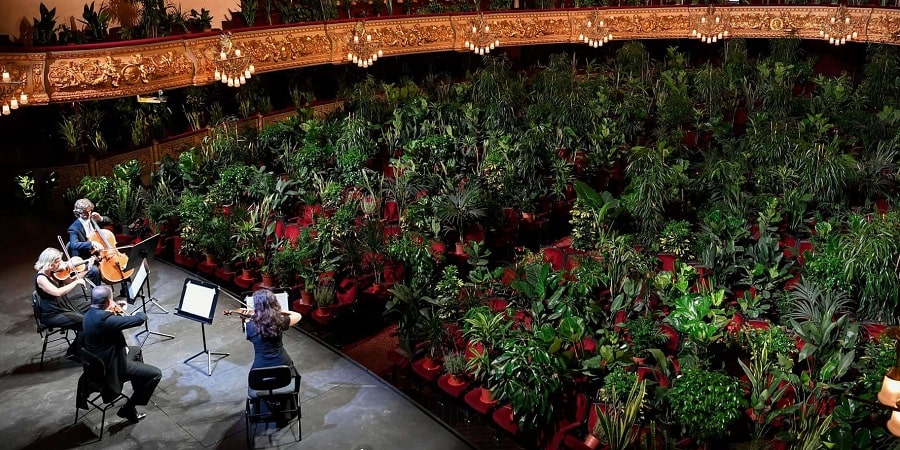The influence of music on plants: myth or reality?

Music was originally created to be listened to by humans. But, as it turns out, it is also pleasing to plants. Some people think this is a myth, but a lot of research has been done in recent years. They have been able to prove that music has an impact on plants. So it should come as no surprise that you can now even buy an album of tracks for house plants.
What music should I play for my plants?
It’s worth realising that flowers don’t have a passion for music genres in the usual sense. You will never encounter a begonia that prefers hip-hop or a rose that enjoys classical symphonies. However, numerous experiments have shown that plants can indeed respond to sound — not to the melody itself, but to the frequency and intensity of the vibrations. These subtle physical waves can stimulate cell activity, accelerate germination, and even influence the direction of growth. Scientists believe that calm, rhythmic tones help plants develop more steadily, while loud or chaotic sounds may cause stress-like reactions. Interestingly, this observation reminds us how sound affects people as well — certain musical patterns can ease tension, improve concentration, and promote emotional balance. Both humans and plants, though in very different ways, reveal that life is deeply connected to vibration and rhythm.
Of all the sounds, the noise of sea waves and thunder, the murmuring of rivers and the humming of bumblebees have proved to be the most favourable. In terms of suitable sound frequencies, it is better for flowers to play classical music and not rock. But some studies have shown that tropical plants ‘prefer’ hip-hop.
How music affects plants
The fact is that the resonance mechanism is at the heart of the sound action. The phenomenon of resonance itself is tightly linked to synchronisation. All these processes are perceived by the plant’s cells, and important processes in the plant tissues begin to take place more actively.

What experiments and research have shown
The first experiments were carried out as early as the 1970s. With these experiments, scientists were able to find out whether music influences the growth of plants or not. For this purpose, all the flowers were divided into three groups. They were placed in exactly the same lighting, humidity and temperature conditions. The difference was that the first group did not play music, the second “listened” to it for 3 hours a day and the third group listened to it for 8 hours a day.
The results were interesting. The scientists were able to see the following:
- The third group. All the plants died within 14 days.
- Group two. There was more active growth of the plants.
From this, the scientists concluded that music has an impact on the development of the plants. But listening to too much music has already had an impact.
They also found that the stems of the flowers were attracted to the sound source when classical music or Indian songs were played. On the contrary, the plants turned away when rock or constant drum beats were played.
Many similar experiments have been carried out in different countries. In 1979, a scientist in the USA began stimulating plants with a special technique. It involved sounding crops and treating them with micronutrients. As a result, it was possible to increase the yield from tomatoes and papaya. And wheat sprouts turned out to have much more vitamins.
However, there are doubts about the veracity of the data. The fact is that Dan Carlson started selling music cassettes and nutrient solutions after the study. This brought her a serious income.
It is not only abroad that such experiments have been conducted. Recently, students at an Italian university decided to study the effects of melodies on plant growth on their own. They used artists such as Adriano Celentano, Eros Ramazzotti and Nina Zilli. After completing the experiment, the students concluded that the plants responded best to Nina Zilli.
Of course, all these experiments could not make everyone take the theory of the influence of music on plant growth seriously. However, there is no getting away from the facts. And it is safe to say that melodies make the protoplasm of cells in plant organisms move faster. And that has an effect on plant growth. You can see this for yourself. All you have to do is regularly play music to your plants to see if the experiments are true.
